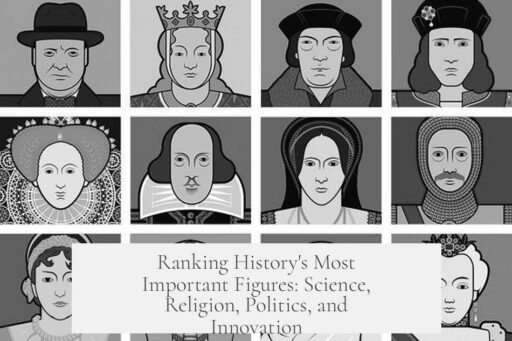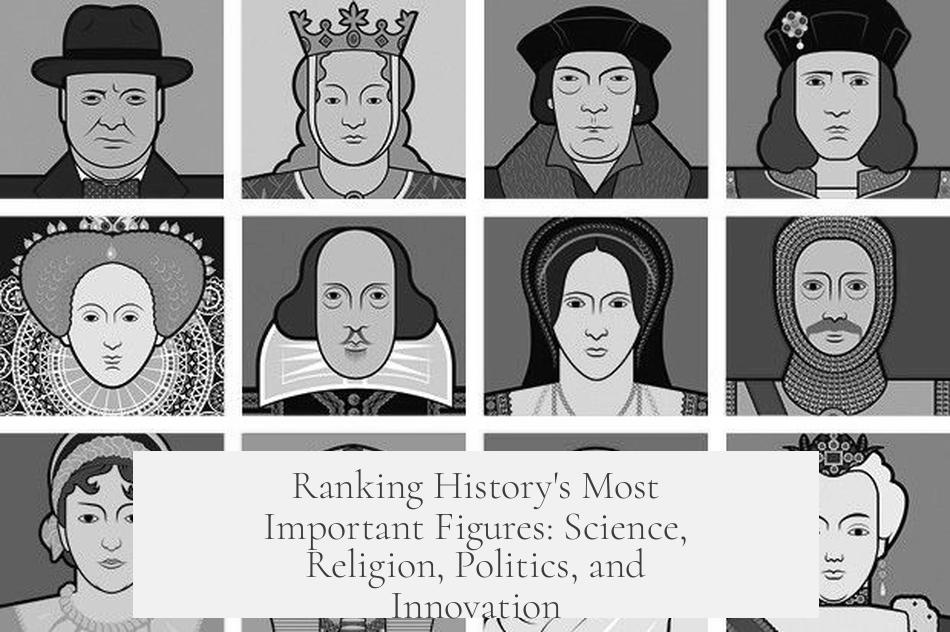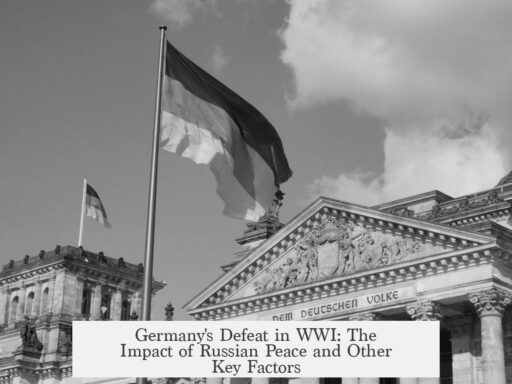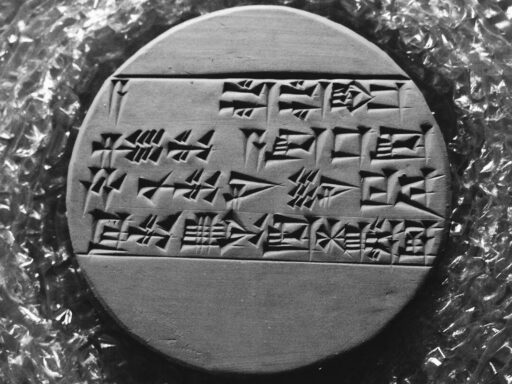The most important figure in history depends heavily on the criteria used, whether it is global impact, technological advancement, religious influence, or political change. Various figures stand out for reshaping human understanding, societies, or entire civilizations. Each category offers notable examples with lasting effects that extend beyond their lifetimes and geographical origins.
In science and mathematics, Sir Isaac Newton ranks among the most influential. He laid the foundations of modern science with his laws of motion and universal gravitation. These principles underpin much of modern physics and engineering, impacting how societies function worldwide. Similarly, Albert Einstein’s theories revolutionized physics and have practical applications in technology, communications, and GPS systems. Charles Darwin altered our understanding of biology through his theory of evolution, replacing myths like Adam and Eve with scientific explanations for the development of life. Galileo reshaped humanity’s view of the cosmos, challenging prevailing beliefs about Earth’s place in the universe.
Religious figures hold an immense influence over billions of people through their foundational roles. Abraham, central to Judaism, Christianity, and Islam, serves as a key patriarchal figure. Without his historical and religious impact, these major faiths would not exist. Emperor Constantine’s decision to adopt Christianity as the Roman Empire’s state religion shaped the religious landscape of Europe and beyond, influencing culture, politics, and power structures across centuries. Cyrus the Great’s support of the Jewish return to Judah and the rebuilding of the Second Temple played a critical role in preserving religious heritage. However, some question the historical existence of Jesus or the authenticity of attributed quotes, highlighting debates about religious influence versus historical evidence.
Political and military leaders have directly shaped nations and borders with long-term consequences. Julius Caesar and Augustus laid the groundwork for Western civilization, influencing governance, law, and culture. Genghis Khan’s conquests united vast parts of Eurasia, facilitating trade and cultural exchange but also causing destruction and demographic shifts. Napoleon spread nationalism and revolutionary ideals across Europe, altering political ideologies and modern nation-states. Queen Elizabeth I initiated the rise of the British Empire, impacting global colonization and language. Qin Shi Huangdi unified ancient China and influenced one of the world’s largest ethnic groups. Kaiser Wilhelm II’s actions contributed to World War I’s outbreak, leading to profound geopolitical changes. Winston Churchill’s leadership during World War II proved pivotal in defeating fascism and shaping post-war order.
Inventors and innovators have changed everyday life and societal structures. Key breakthroughs like the discovery of farming, the invention of the wheel, and domestication of animals enabled civilization’s start. Johannes Gutenberg’s printing press democratized knowledge and literacy. Tim Berners-Lee’s creation of the internet transformed communication and information sharing. Louis Pasteur and Marie Curie pioneered medical and scientific advancements that saved countless lives. Industrialists and inventors like Andrew Carnegie, Nikola Tesla, and Thomas Edison influenced energy and manufacturing. Early technological developments such as refining metals and producing tools laid the building blocks of modern technology.
Other impactful figures include:
- Christopher Columbus, whose voyages catalyzed European exploration and colonization of the Americas.
- Karl Marx, whose ideas form the basis of communism and modern political discourse on class and economy.
- Adolf Hitler, whose tyranny demonstrates the destructive potential of oppressive ideologies.
Assessing “importance” involves considering whether the impact is global or national. Figures primarily affecting one country might have less universal significance. Some evaluate importance through technological and medical progress rather than military might or conquest. Scientists and engineers often create the structural changes that redefine civilizations, while generals and rulers may wield power with more immediate but sometimes destructive effects.
Ultimately, the “biggest” figure varies by perspective. Scientific pioneers shape understanding and technology, religious leaders provide foundational cultural frameworks, political rulers affect governance and borders, and inventors transform daily life.
| Category | Notable Figures | Impact |
|---|---|---|
| Science & Math | Isaac Newton, Albert Einstein, Charles Darwin, Galileo | Scientific revolutions, modern physics, evolution theory, worldview shifts |
| Religion | Abraham, Constantine, Cyrus the Great | Founding major religions, religious state adoption, cultural preservation |
| Political & Military | Julius Caesar, Genghis Khan, Napoleon, Queen Elizabeth I, Qin Shi Huangdi, Churchill | Empire building, national shaping, wars, colonialism |
| Inventors & Innovators | Gutenberg, Tim Berners-Lee, Pasteur, Curie, Carnegie, Tesla, Edison | Printing press, internet, vaccines, energy, industrialization |
- Importance varies with values and global vs. national impact.
- Scientific figures enable understanding and technological progress.
- Religious leaders influence billions through faith and culture.
- Political rulers reshape nations and societies through governance.
- Innovators transform everyday life and knowledge dissemination.
Who’s Biggest? Who’s Your Most Important Figure in History?
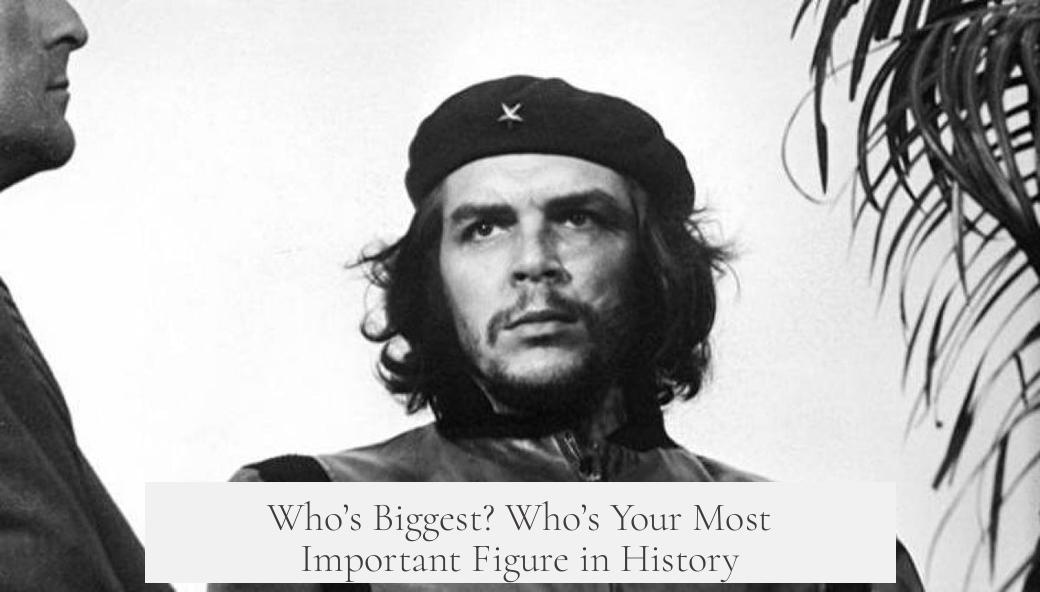
Picking the most important figure in history is a tough nut to crack. History is full of incredible people who have shaped our world in countless ways. But if you’re pressing me for a name, the answer depends on what you value most: science, religion, politics, innovation, or even sheer impact on human culture. So, let’s dive deep into some major contenders and what makes each one stand out.
Let’s get this out of the way first: importance isn’t just about fame. It’s about lasting impact. And some of these figures literally shaped how we see everything from our stars to society itself.
Science and Math: The Minds Behind Modern Understanding
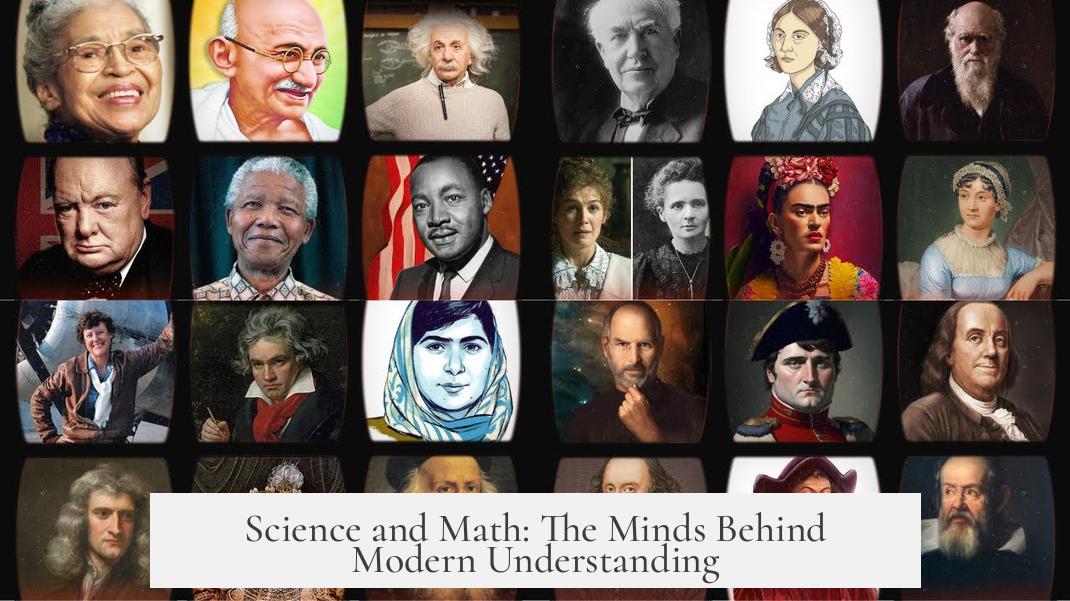
**Sir Isaac Newton** deserves a top spot on any list about importance. He’s not just the apple guy; he laid the foundation for modern science and mathematics—systems that underpin everything from building bridges to launching rockets. The scientific revolution sparked by Newton affects every person worldwide, regardless of background. Without him, your smartphone might be as magical as a toaster on Mars.
But wait, another genius quietly nips at Newton’s heels: Albert Einstein. The world literally runs on the implications of his equations. His theory of relativity changed our understanding of time, space, and energy. From nuclear power to GPS satellites, Einstein’s work is part of your daily routine whether you know it or not.
And then there’s Charles Darwin. His idea of evolution reshaped humanity’s self-perception. No more mystical Adam and Eve stories dominating science class; instead, we got a grounded, evidence-based understanding of our place in the natural world. That’s a seismic shift in perspective—quite literally *evolving* our worldview.
Let’s not forget Galileo Galilei, who helped kick-start the scientific revolution by challenging old assumptions with telescope in hand. His work reshaped how every single person sees the universe.
Religion: Founders and Shapers of Belief Systems
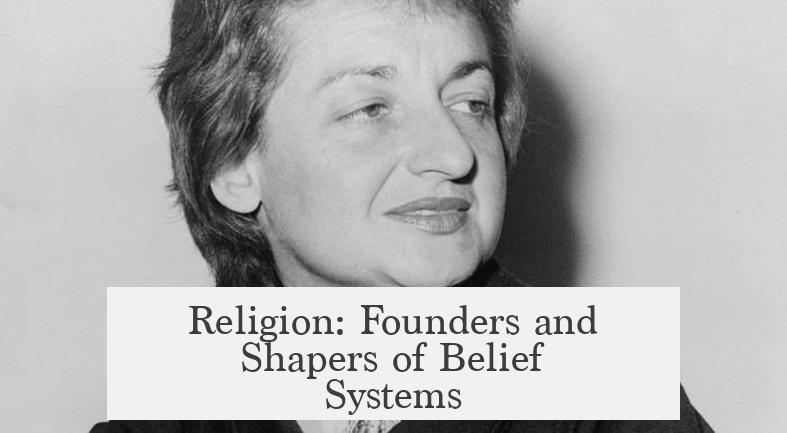
When it comes to spiritual influence, few can rival Abraham. Not Abraham Lincoln—though he’s impressive—but Abraham, the patriarch of the Abrahamic religions: Judaism, Christianity, and Islam. Without him, these faiths might never have existed.
Then comes Constantine the Great, the Roman emperor who made Christianity the state religion of the Roman Empire. This act shaped European history, politics, and culture in a way few other decisions have. It’s hard to imagine the Europe we know today without him.
Cyrus the Great also deserves serious credit. As the Persian king who allowed Jews to return from Babylonian exile and funded rebuilding the Second Temple, he indirectly paved the way for major religious traditions to flourish.
Now, the legacy of Jesus is complicated. Some argue his influence grew mainly posthumously, raising valid questions about the accuracy of certain attributed quotes. Plus, there’s little contemporary historical evidence confirming his existence as a miracle worker. Regardless, Christianity’s impact on civilization is undeniable, even if debated.
Political and Military Leaders: Power Players Who Changed History

The expansion and legacy of Western civilization often trace back to Julius Caesar and Augustus. These Roman leaders laid the foundation for modern Europe with laws, arts, and philosophy that still echo today.
Meanwhile, Genghis Khan reshaped Eurasia through conquest and trade networks that ironically helped spread the Black Death in Europe. His aggressive expansion created connections across continents in ways that altered history profoundly.
One can’t ignore Napoleon Bonaparte, who spread nationalist ideas born from the French Revolution throughout Europe. He may not have ruled during the War of the First Coalition, but his role in shaping European politics is huge.
Queen Elizabeth I played a decisive role too, defeating the Spanish Armada and sparking the British Empire’s rise. Her timing was impeccable, coinciding with England transforming into a global power, setting the stage for the modern English-speaking world.
Further east, Qin Shi Huangdi unified China, creating the world’s largest ethnic group through cultural assimilation. At one point, he ruled some 40% of the planet’s population—an incredible feat that laid the groundwork for modern China.
Closer to modern times, Kaiser Wilhelm II inadvertently triggered World War I, whose outcomes still ripple worldwide. The Treaty of Versailles redrew maps and influenced geopolitical realities well into the late 20th century.
And how could you forget Winston Churchill during World War II? His leadership during Britain’s darkest hours was pivotal in defeating Adolf Hitler—a moment that changed history’s course.
Inventors and Innovators: The Hands That Shape Civilization
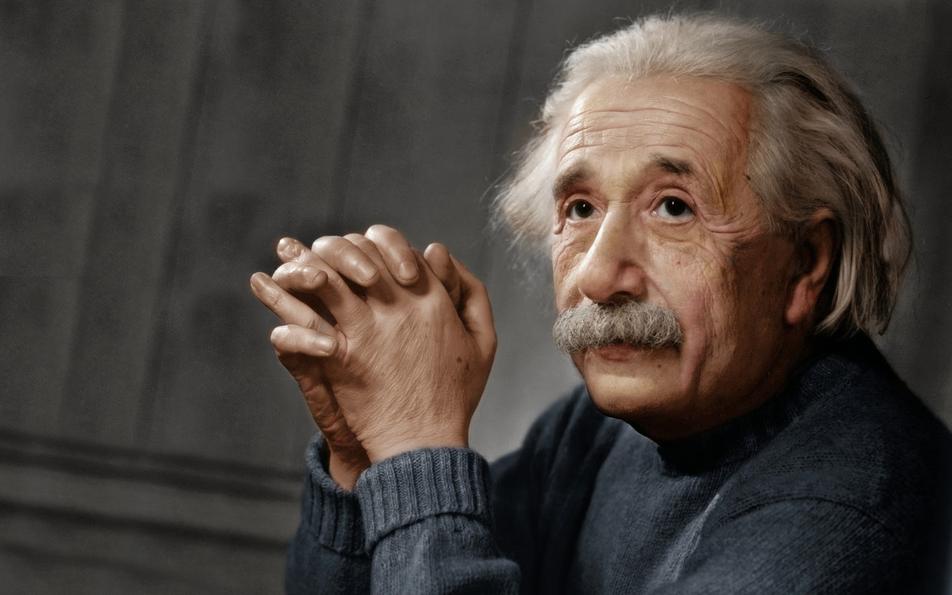
Imagine life without farming. The person who figured out agriculture literally started civilization as we know it. Settling down, building cities, creating food surpluses—all thanks to this innovation.
Johannes Gutenberg, inventor of the printing press, revolutionized knowledge sharing. No Gutenberg, no mass literacy, no enlightenment. The ability to reproduce books cheaply flipped history’s script.
The internet’s founding father, Tim Berners-Lee, connected the globe in an instant. He launched a digital revolution that influences billions daily.
Also deserving attention is Hammurabi, whose code laid the groundwork for modern laws. His contributions helped shape the concept of rules and justice systems worldwide.
Scientists like Louis Pasteur and Marie Curie brought tangible benefits. Pasteur’s vaccines and sanitation methods saved millions. Curie’s research on radiation advanced medicine and technology, paving the way for x-ray machines.
Andrew Carnegie mass-produced steel, fueling industrial revolutions. Nikola Tesla and Thomas Edison electrified the world, each leaving legacies in electrical engineering, though Tesla’s innovations often get overshadowed.
And let’s tip our hats to early pioneers: the unknown inventors of fire, the wheel, beer, bronze refinement, and animal domestication—all unsung heroes whose innovations underpin our survival and progress.
Other Notable Figures Who Left a Mark
Christopher Columbus didn’t “discover” America, but his voyages sparked European exploration and colonization. The historical split into Pre- and Post-Columbian is a testament to his impact.
Karl Marx shaped political ideologies that influenced numerous countries and global movements, regardless of how contentious his philosophy remains.
Sadly, not all impactful figures left positive legacies. Adolf Hitler’s brutal reign showed just how destructive humans can be on a grand scale.
How to Decide Who’s the Most Important?
So, how do you pick “the biggest”? It depends on your criteria.
If you’re thinking globally, figures tied to a single nation, like Lincoln or Washington, might rank lower. The world is more than just one country.
Importance also boils down to values. Some prioritize scientific progress and human knowledge, others lean towards political power, religion, or cultural influence. For one person, a conqueror might be most important; for another, it might be a groundbreaking scientist whose work saves lives.
Interestingly, many argue scientists and engineers transform the world fundamentally, while generals simply cause destruction. That’s a valid viewpoint if you prefer to celebrate creation over conquest.
So, Who’s Your Pick?
Putting this all together, here’s a bold claim: the most important figures aren’t just warriors or prophets or inventors—they’re the ones who changed how humanity understands and interacts with the world on a massive scale.
Isaac Newton’s laws still govern physics. Darwin’s theory reshaped biology. Gutenberg’s press democratized knowledge. Each of these figures altered reality itself, whether in subtle or monumental ways.
But your pick might be different. Maybe you favor a political leader who shaped national identities, like Elizabeth I or Genghis Khan. Or perhaps the founders of major religions that influence billions today, such as Abraham or Constantine, hold the crown.
The truth is, history’s biggest figures come from many fields, working in various contexts. They collectively built the world you live in—sometimes by design, sometimes by accident.
What do you think? Who tops your personal history list? Is it the thinker, the conqueror, the innovator, or the prophet? Or a surprising figure no one talks about? History’s greatest feat might be just how many giants it holds simultaneously.
Who are some of the most influential scientific figures in history?
Isaac Newton and Albert Einstein are top candidates. Newton laid the foundation for modern science, while Einstein’s equations shape much of today’s technology and physics.
Which religious figure has had the greatest historical impact?
Abraham is key, influencing Judaism, Christianity, and Islam. Also, Cyrus the Great helped preserve Judaism by enabling Jewish return and temple rebuilding.
Who changed the course of political history on a large scale?
Leaders like Genghis Khan reshaped Eurasia, while Julius Caesar and Augustus laid the foundation for Western civilization. Napoleon spread nationalism across Europe.
Why is Johannes Gutenberg important historically?
He invented the printing press, which revolutionized information sharing. This invention spread knowledge widely and quickly, influencing culture and education.
Can lesser-known figures also be very important?
Yes. For example, Pasteur’s work on vaccines saved many lives, and Qin Shi Huangdi unified China, shaping one of the largest lasting cultures.
